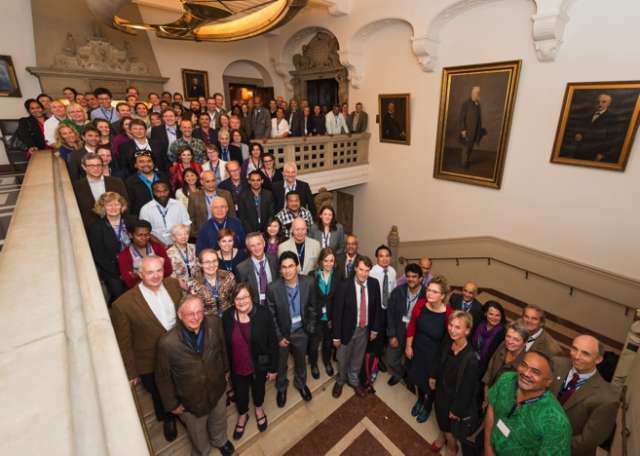Tackling non-communicable diseases or lifestyle options for improved nutrition and well-being; exploring the convergence of science and traditional knowledge in aqua and agriculture for a sustainable and healthy living in the 21st century; and enhancing community resilience in managing environment, water and wastes under a changing climate. These were the main issues addressed through three Think Tanks at the Conference that was held in the framework of PACE-Net Plus (the Pacific Europe Network for Science, Technology and Innovation)† from the 9th to the 11th of September 2014 in Bremen (Germany).
Prof. H. Westphal, Director of ZMT, welcomed the conference attendees by emphasizing the unique interdisciplinary research and use of scientific knowledge of this German Institute to find holistic approaches for the sustainable use of coastal resources. Dr. Heseler (State Secretary, Ministry of Economic Affairs, Labour and Ports of the Free Hanseatic City of Bremen) also honoured the PACE-Net delegation with his presence in the historic and ornate Bremen Town Hall—which was pronounced a world cultural heritage site by UNESCO—where he spoke about how “Cooperation is the engine of science.”
Co-organised by SPI (Sociedade Portuguesa de inovação), ZMT (the Leibnitz Zentrum für Marine Tropenölogie) and several other partners of the project, this conference sought to update and identify research priorities for both EU - Pacific region cooperation in the fields of health, food and nutrition security, and climate change and the environment, which are three of the major societal challenges of Horizon 2020, the Research framework programme of the European Commission (EC). The conference also aimed to identify innovation niches in these fields and develop preliminary ideas for joint initiatives and activities.
Finally, the conference participants formulated policy recommendations, which will feed into the regional and bi-regional EU-Pacific policy dialogue on scientific, technological and innovation cooperation supported by PACE-Net Plus at the key stakeholder and decision-maker levels.
Approximately one hundred experts and officials from Europe (Belgium, Bulgaria, France, Germany, Italy, Netherlands, Norway, Portugal and United-Kingdom) and from the Pacific (Australia, Fiji, French Polynesia, Guam, Kiribati, New Caledonia, New Zealand, Papua New-Guinea, Samoa, Tuvalu and Vanuatu) took part in this event, providing valuable inputs. As always within the PACE-Net and PACE-Net Plus project frameworks, the event was a formidable opportunity to support networking between experts and key stakeholders for potential partnerships in Science, Technology and Innovation.
The outcomes of these various think tanks will be presented at the upcoming bi-regional dialogue to be held in Auckland on 10-11 December 2014.
More information on PACE-Net Plus: http://plus.pacenet.eu/
More information on the Bremen Conference and think tanks: http://plus.pacenet.eu/events/pacenetplus-bremen-2014
† PACE-Net Plus is a project funded by the European Commission to strengthen further bi-regional science, technology and innovation (ST&I) cooperation and dialogue between the Pacific Region and the European Union. The project brings together 16 members, from the Pacific region and the EU, and is coordinated by IRD (Institut de Recherche pour le Développement).




